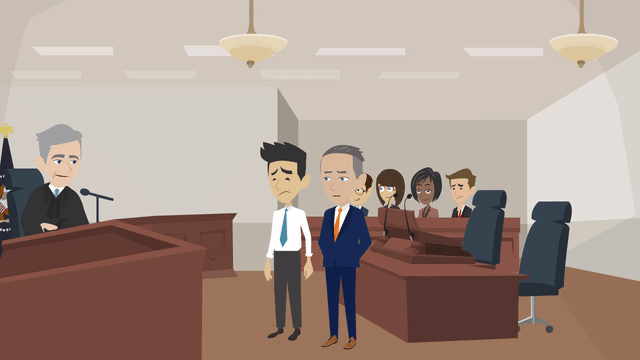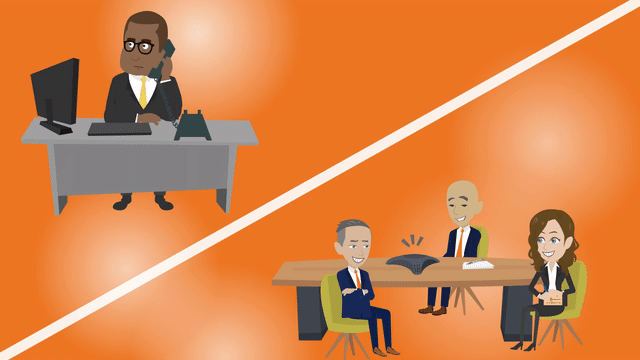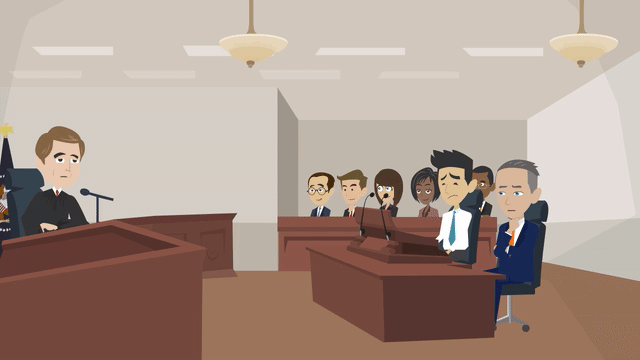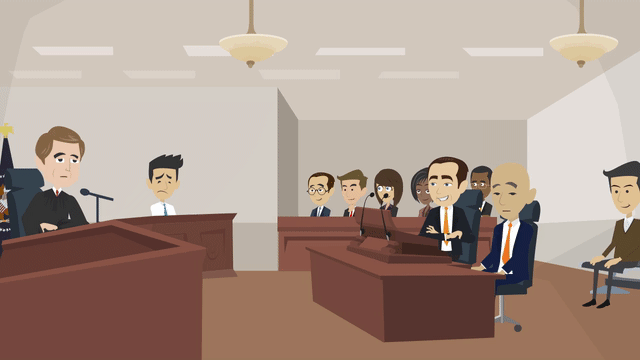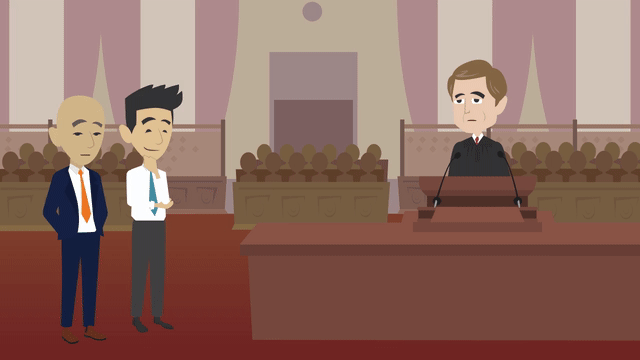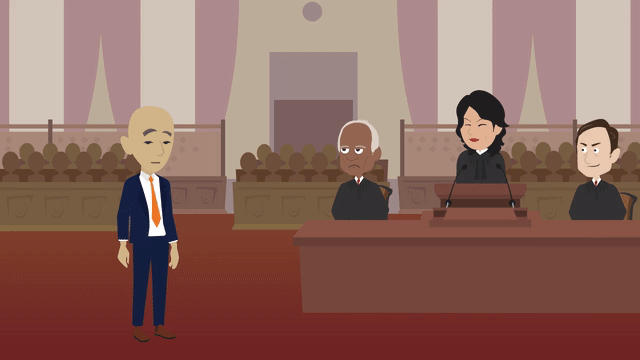Boating While Impaired or Intoxicated Defense Attorneys & Lawyers
Summers in upstate New York are a great place to spend time. Many people enjoy boating on Lake George, Saranac Lake, Saratoga Lake, Burden Lake, or many of the other lakes or rivers throughout upstate New York. While everyone wants to have a good time, it is important to limit your alcohol consumption while operating a boat. Like a DWI charge, a BWI charge can carry significant consequences.
Operating a boat while intoxicated is a crime in New York. Pursuant to New York State Navigation Law §49-A, if a person is found to be operating a boat with a blood alcohol level of 0.08 or higher, he/she may be charged with a misdemeanor, subject to imprisonment, fines, and the suspension of boating privileges.
Frequently Asked Questions About Boating While Impaired Or Intoxicated
Our criminal defense lawyers provide answers to some important questions below.
Under §49-a(2)(b) and §49-a(2)(d) of the Navigation Law, Boating While Intoxicated is a misdemeanor punishable by up to 1 year in jail, and a fine of up to $1,000. Additionally, the court may suspend a vessel registration for twelve months. The boater must also complete a boating safety course. The NYS DMV will also impose a driver assessment penalty.
A second conviction for BWI within a 10-year period is a class E felony punishable by a term of imprisonment up to 4 years as well as a maximum fine of $5000 and a suspension of a vessel registration.
Boating while ability impaired is a non-criminal offense pursuant to Navigation Law §49-a(2)(a). If you are convicted of BWAI, you face a fine of up to $500 and up to 15 days in jail. Additionally, a court may suspend a vessel registration for up to twelve months. The boater must also complete a boating safety course. The NYS DMV will also impose a driver assessment penalty.
If you are charged with BWAI and have a previous BWAI within the previous five years you face a fine of up to $750 and a jail term of up to 30 days. Additionally, a court may suspend a vessel registration for up to twelve months. You also face and additional NYS DMV driver assessment penalty.
If your blood alcohol content is at or above .08, you are intoxicated in the eyes of the law. If there is no blood or breath test, intoxication is determined based on whether you are incapable, to a substantial extent, of employing the physical and mental abilities which you are expected to possess in order to operate a boat as a reasonable and prudent operator.
The law does not require any chemical or physical test to prove that a person is intoxicated. Rather, to determine whether a person is intoxicated, a jury, judge, police officer and prosecutor can consider all the surrounding facts and circumstances, including, for example:
- the defendant’s physical condition and appearance.
- the defendant’s balance, coordination, and manner of speech.
- the presence or absence of an odor of alcohol.
- the way the defendant operated the motor vehicle or boat.
- the circumstances of any accident.
If your blood alcohol content is at or above .08, you can be charged with boating while intoxicated. However, even without a blood alcohol level, if there is evidence you are intoxicated, you may still be charged with BWI.
You are impaired to operate a vessel or vehicle when your blood alcohol content is either .06 or .07 or your physical and mental abilities are impaired, to any extent, by the consumption of alcohol.
A blood alcohol content of .06 or .07 is evidence that are impaired by the consumption of alcohol.
Under §49-a(2)(e) of the Navigation Law, Boating While Impaired by a drug is a misdemeanor punishable by up to 1 year in jail, and a fine of up to $1,000. Additionally, the court may suspend a vessel registration for twelve months. The boater must also complete a boating safety course. The NYS DMV will also impose a driver assessment penalty.
A second conviction for boating while ability is impaired by a drug within a 10-year period is a class E felony punishable by a term of imprisonment up to 4 years as well as a maximum fine of $5000 and a suspension of a vessel registration. The boater must also complete a boating safety course. The NYS DMV will also impose a driver assessment penalty.
Maybe. In limited circumstances, pending the outcome of a case, the court may suspend your right to operate a vessel if you are charged with either 1. assault in the second degree or 2. manslaughter in the second degree.
In New York, evidence that a person’s blood alcohol content (BAC) was .05 or less is evidence that the ability of such person to operate a vessel or a vehicle was not impaired by the consumption of alcohol, and that such person was not in an intoxicated condition.
If you are caught operating a boat after your boating license is suspended because of a boating while intoxicated conviction, you will be charged with the non-criminal offense of operating with a suspended license. If you are convicted of this offense you face a fine of up to $750 and/or a period of incarceration of up to 90 days.
If you operate a boat in an intoxicated condition while your boating license is suspended because of a BWI or BWAI, you face a misdemeanor charge for operating with a suspended license. A conviction for this offense carries a fine of up to $5,000 and up to 1 year in jail. Of course, you will also face the consequences of the new BWI charge which will likely be a felony if your prior conviction was for BWI or a misdemeanor if your prior conviction was for BWAI.
If you refuse to take a breath test your boating license will initially be suspended for 15 days during which a hearing will be conducted to determine whether you refused to take the chemical test. At a hearing, a judge must determine the following:
- Did the officer have reasonable cause to believe you were under the influence of alcohol?
- Did the officer make a lawful arrest?
- Was a sufficient warning given prior to the refusal?
- Did you refuse?
If a judge determines that all 4 questions can be answered “yes”, your boating license will be suspended for six-months. However, if you have been previously convicted of BWI or BWAI or if you have previously refused to take a chemical test, you face a 1-year revocation of your boating license. In addition, you will be required to pay a civil penalty of $200 upon the first occurrence and $500 if there has been a prior suspension or conviction.
No. If you lose your boating license because of a BWI or BWAI, only your license to operate a vessel will be impacted. A BWI or a BWAI will have no consequences on your ability to drive a motor vehicle.
If you cause an injury to someone and are charged with boating while intoxicated, you may be charged with assault. The significance of the injuries caused, and the circumstances of the arrest will determine how serious the charge is. You should contact a criminal defense lawyer that handles boating while intoxicated and assault charges if you injure someone while you are boating while intoxicated.
If you are boating while intoxicated and recklessly cause the death of another person, you may be charged with manslaughter in the 2nd degree, a class C felony. If convicted of manslaughter in the 2nd degree you face between 5 and 15 years in prison. You may also be charged with criminally negligent homicide, if, with criminal negligence, you cause the death of another person. Criminally negligent homicide is an E felony. If you are charged with criminally negligent homicide, you face up to 4 years in prison. The facts and circumstances of any crash that occurs while under the influence of alcohol must be discussed in great detail with your criminal defense lawyer who will want to determine whether the evidence against you is sufficient to support the crimes charged.
Timeline of a Criminal Defense Case
- Whether you just made a big mistake, or are being falsely accused, this can be a very emotional and important time in a case
- It is very important that you remain silent and not answer any questions about the case without a lawyer present
- Contact a criminal defense attorney as soon as possible
- Confirm the lawyer is an experienced criminal defense lawyer
- Meet with the lawyer who will help you understand the process of a criminal case
- If you have been arrested, critical proceedings and time frames begin immediately
- You will appear before a judge who will determine if you will be incarcerated, released on bail or supervision, or released without conditions
- If you are charged with a felony in a town, village or city court, the prosecuting agency will have six months from the date of your arrest to determine whether to present your case to a grand jury to seek an indictment or return your case to a lower court to be handled as a misdemeanor
- Discovery is the exchange of information between the governmental agency prosecuting you, you, and your attorney
- In New York State this process begins shortly after your appearance in court
- You can expect exchange of the following if it exists in your case:
- Police Reports
- Investigative Notes
- Videos / Body Camera Footage / Dash Camera Footage
- Forensic Reports
- Photographs
- Exculpatory Material (Brady)
- Impeachment Material
- You and your attorney may also be engaged in information gathering that includes:
- Freedom of Information Law (FOIL) Requests/Responses
- Additional Witness Interviews
- Expert Evaluations / Disclosures
- Motions are written applications to the court to request any of the following:
- Preclude Evidence
- Suppress Evidence
- Seek a Ruling on a Constitutional Rights Violation
- Seek Outright Dismissal of One or More Charges Based on Legal/Factual Matters
- Request Hearings
- A plea bargain is an offer from the prosecuting attorney to resolve your case
- Whether to plead guilty or not is always a choice you get to make, not your attorney
- Your attorney will meet with you, discuss the facts and the law of your case, and offer advice. A plea offer takes into consideration your charges as well as:
- Prior criminal history if any
- Life experiences
- Evidentiary Problems
- Post-Incident Actions
- Mental Health Counseling
- Substance Abuse Treatment
- Anger Management Treatment
- If you choose not to accept a plea bargain and are heading to trial, there are likely to be hearings to consider the following:
- Preclusion/Suppression of Evidence
- Admissibility of Evidence
- What Prior Criminal History/Bad Acts May Be Introduced by the Prosecutor if You Testify on Your Own Behalf
- During a hearing, there is no jury, and the judge will make factual and legal determinations regarding what evidence will be allowed at trial.
- You have the right to a trial by a fair and impartial jury or by the judge who will act as both judge and jury
- At a trial, the prosecution has the burden to prove your guilt beyond a reasonable doubt
- The judge or jury will listen to the evidence presented and the arguments by the lawyers, apply the facts to the law, and render a verdict of not guilty or guilty
- A Verdict must be unanimous
- If you are convicted at trial, or if you entered a plea bargain, there will be a sentencing date where your punishment will be imposed by the judge
- If you previously entered a plea bargain, the judge will likely impose the agreed upon sentence at that time
- In the event you are convicted, you have the right to appeal
- This is true whether you plead guilty or are convicted after trial
- However, by accepting a plea bargain, you may have waived some of your appellate rights
- It is important that your attorney file a notice of appeal on your behalf and that you discuss the appeal process with your lawyer
LaMarche Safranko Law Testimonials
“My family and I cannot thank George and his staff enough for all of the support and guidance they have given us over the past six months. Anyone who has ever suffered a personal injury knows how difficult they are to overcome, but I’m glad we had such an intelligent and hardworking attorney on our side so I could focus on my recovery rather than on the details of the case….
“No one likes to be in a bad situation, but if you need a lawyer George is your man. Not only does he point you in the right direction he offers good advice for your future. As much as we bring him business he does not encourage that next time anticipation….
“I wanted to take this opportunity to thank you for your excellent representation on my recent matter. I have worked with lawyers, and in law firms much of my professional life, but I have never encountered the rare mix of skill, integrity and humanity in one individual—you….
“Dear Andy,
Thank you so much for everything you have done for our son over the last three years. This has been a very challenging time for our family and the knowledge that our son has an attorney as capable and amazing as you are has given us peace of mind!
“I can honestly say that the best decision I’ve ever made was retaining George LaMarche as my attorney. I was in a situation where everything wasat risk; my career, livelihood, and the ability to provide for my family. In desperation, I contacted over a dozen attorneys. The majority of the lawyers I spoke with promised results without seeing paperwork or knowing valuable facts….
“The staff at LaMarche Safranko Law took care of whatever I needed, it was just fabulous. It was top shelf, if I called, I got George. If he was in a meeting, they left him a message. He called me right back after the meeting. Everybody was very courteous and very nice there. If I left a voicemail, everybody got back to me quickly. The level of service was very, very good and I would Highly recommend them.”
“Dear Andrew and George,
I cannot thank you enough for your hard work, diligence, and selfless manner that you put towards my legal difficulties in Colonie. From the first moment I met you, you helped reassure me that things were going to turn out in a more favorable manner than I originally thought. Clearly, the final result of my court case displays the quality of time and work that you put into this….
“I cannot thank George E. LaMarche lll and his team for the excellent legal work they provided for my son, and in extension, our entire family. His experience, knowledge of the law, networking ability and communication is second to none. In our case, our son was wrongly accused by a small town police officer and charged with 5 tickets…
“The arrest of my husband in 2008 was an extremely difficult and emotional time for our family. The arrest turned our lives upside down. It was sudden and unexpected and had tragic emotional as well as financial consequences. I had no idea what to do under the circumstances….
“Throughout the attorney client relationship regarding my personal injury lawsuit, George and his staff continually exhibited tremendous amounts of legal knowledge, skill, and a vast amount of expert resources that ultimately resulted in a final judgment in my favor. George was there every step of the way to explain where we stood and what to expect next and there was never a need to question his professional judgment…
“Dear George, Andy and Staff,
Thank you all for your kindness and all your help in getting back to my wellbeing and life. I could not have done it without you all. Everything is going so well again. I recommend you highly. Thanks Again!”
“I wanted to express my deepest appreciation to Mr. Andrew Safranko for the exceptional job he did in regards to my legal representation. Mr. Safranko displayed the utmost in professionalism and discretion during the entire court process, and took the time to explain each and every step….
“I am an attorney who found himself in the middle of a serious, personal legal matter that compromised not only my personal life but my professional life as well. I immediately contacted Andrew (Andy) Safranko, Esq. Andy worked tirelessly and extremely hard to bring my legal situation to a very favorable resolution. In so doing, Andy not only saved certain aspects of my personal and professional life…
“Dear Mr. Safranko,
Thank You so much for answering my question, and so expediently!
The dedication, respect, and consideration with which you treat your clients, current and past, is remarkable. It is why I reached out to you when searching in my time of need, and why I would highly recommend…




